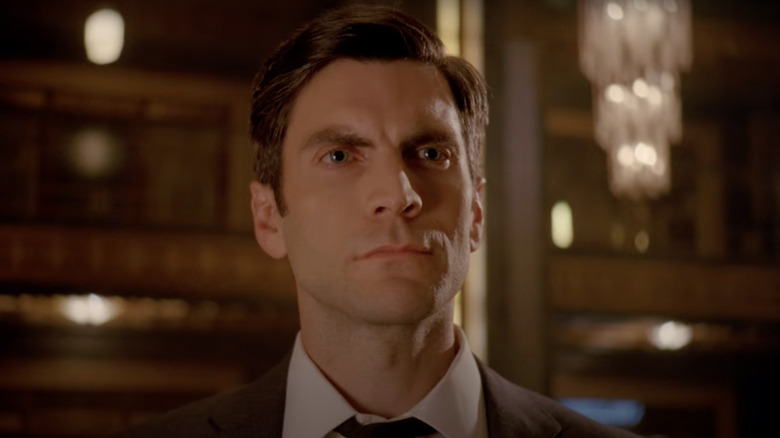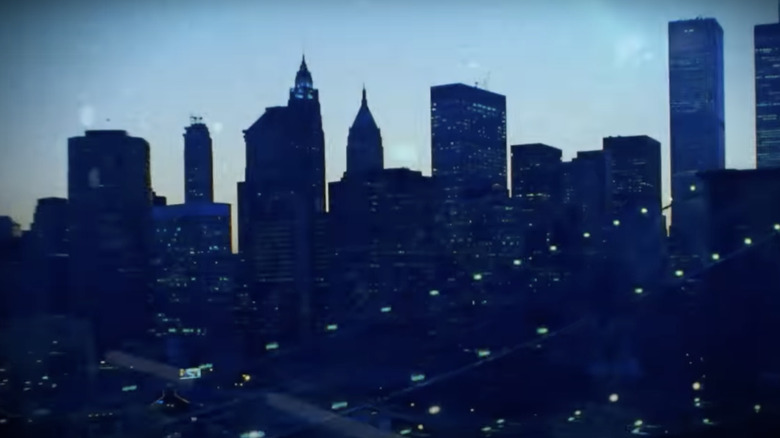Did Wes Bentley Predict AHS: NYC Years Before It Aired?
With a name like "American Horror Story," it makes sense that the horror anthology series would explore locales all over the country. The United States, as it turns out, is a very haunted place, and it seems true whether we're talking about covens of witches in New Orleans, sadistic mental asylums in Massachusetts, or killer clown cults in Michigan. The most recent season pretty much hit this home by plainly titling itself after the city it takes place in, "American Horror Story: NYC."
It makes sense that New York City would be on creators Ryan Murphy and Brad Falchuk's radar for some time. And not just their radars either. During an interview with Larry King in 2015, Wes Bentley — who appeared in "Freak Show," "Hotel," and "Roanoke" — was read a question from a fan on Twitter that asked what he would choose as the next theme for "American Horror Story."
Bentley thought for a few moments. "It would have to be something in New York, I think," he said. "I think New York has such a hidden, violent history." This was not long after Bentley had appeared in "Hotel" as the troubled LAPD Detective John Lowe, and several seasons before "NYC" was announced.
Hidden violent histories
"American Horror Story: NYC" did indeed explore some of the violent histories of New York City, specifically zooming in on the bigoted violence and neglect that the city's queer community experienced as the AIDS crisis gained steam in the 1980s. Unfortunately, Wes Bentley wasn't a part of the season.
Though Bentley likely had very little influence on what Ryan Murphy or Brad Falchuk had in mind for "American Horror Story," his role in "Hotel" was, in some ways, exploring familiar ground for the anthology series. "Hotel" was set in Los Angeles, taking its cue from some of the many terrifying events that have taken place over the decades at the Cecil Hotel in Downtown L.A. But this wasn't the first time that "AHS" had chosen the City of Angels as its setting.
The very first season of "AHS," retroactively titled "Murder House," also took place in L.A. So did significant chunks of "Apocalypse," "1984," and the "Death Valley" half of "Double Feature." Nobody can deny that it's a city with its own haunted past. Still, that it's served so frequently as a backdrop while the largest city in the country had to wait eleven seasons does feel a bit unbalanced. Maybe they should keep it in mind for future seasons.

